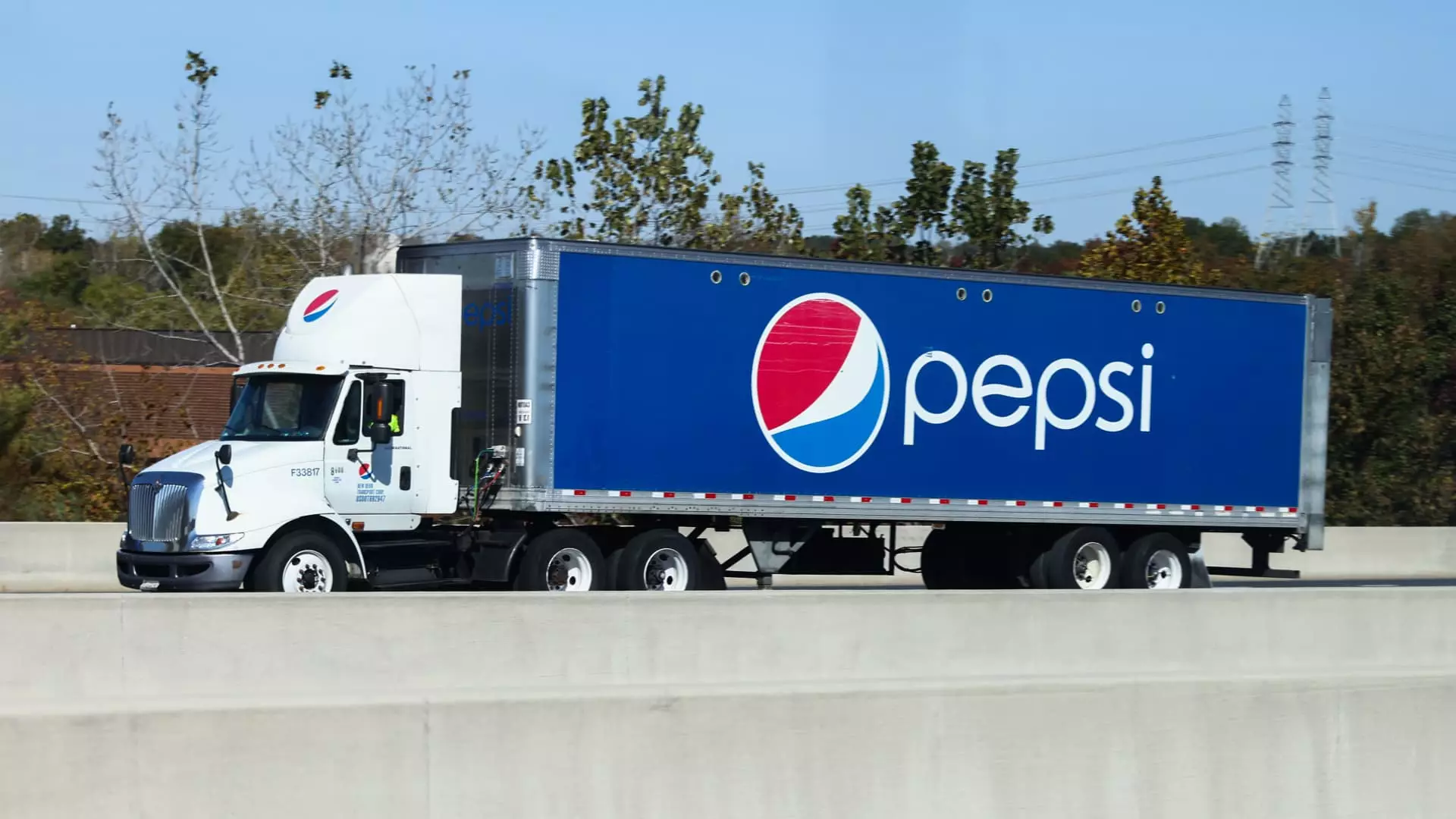PepsiCo’s latest earnings report reveals a significant decline in overall sales, prompting the company to revise downwards its outlook for organic revenue for the full fiscal year. The adjustments come on the back of two consecutive quarters where actual earnings fell short of market expectations. This downward trend raises concerns not only about PepsiCo’s immediate performance but also its strategy going forward, particularly in response to changing consumer behaviors and market dynamics.
In the third quarter, PepsiCo reported net income attributable to the company of $2.93 billion, equating to $2.13 per share—lower than the $3.09 billion or $2.24 per share reported in the same period the previous year. Even after adjusting for specific items, earnings were just slightly above analyst predictions. Revenue reached $23.32 billion, but this number fell short of the anticipated $23.76 billion. The organic revenue—a critical metric that excludes the impact of acquisitions, divestitures, and fluctuating currency rates—grew a mere 1.3%, indicating that underlying growth drivers are losing momentum.
Moreover, the overall volume for both food and beverages suffered a decline, with a reported 2% drop across the board. The once-reliable Quaker Foods North America sector demonstrated a staggering 13% decrease in volume, showcasing the broader challenges PepsiCo is facing amid recalls and changing consumer preferences.
The recall saga tied to Quaker Foods has undoubtedly marred PepsiCo’s reputation. The company initiated its first recall in December due to potential salmonella contamination, exacerbating nationwide concerns over food safety. Even though company leadership insists the negative impact from the recalls is receding, the immediate consequences may persist as consumers reassess their trust in the brand.
Furthermore, recent comments from executives reveal that consumers across all income levels have started to alter their purchasing habits. Shoppers are seemingly more cautious, gravitating toward value-oriented products. This shift presents a significant challenge for PepsiCo as it must adapt to the changing landscape while striving to maintain brand loyalty.
While domestic trends show a decline in demand, PepsiCo’s international operations are not faring much better. Volume shrinkages were reported in key regions such as Latin America and parts of the Middle East and South Asia, further amplifying the difficulties the company is experiencing globally.
In particular, the Frito-Lay division, known for its popular snacks like Cheetos and SunChips, reported a 1.5% decline in volume as well. Although the company is attempting to bolster its value proposition and improve available offerings in stores, this effort has not yet translated into rebounding sales figures. Industry executives noted that salty and savory snacks, once the darling of the packaged food market, are no longer seeing the same growth levels as in previous years.
Looking ahead to 2024, PepsiCo now anticipates only a low-single-digit increase in organic revenue—an adjustment from its prior forecast of 4%. This tempered expectation raises questions about the company’s strategic road map for recovery. Nevertheless, PepsiCo remains confident in its core business’s potential, reiterating its commitment to achieving at least an 8% growth in core constant currency earnings per share.
Investors will be closely monitoring these developments as PepsiCo navigates the uncertainties of the current economic climate. With consumer preferences evolving and a competitive market landscape, the company must remain agile and innovative to reclaim its growth trajectory and restore faith among its stakeholders.
Overall, PepsiCo’s recent performance paints a complex picture marked by challenges stemming from both internal missteps and external market forces. The company must address its immediate issues, especially the fallout from product recalls, while simultaneously adapting its approach to align with shifting consumer behaviors. As it stands, the road to recovery will require strategic recalibration, significant investment in consumer trust, and an unwavering focus on delivering value—both on the shelf and in consumers’ homes.


Leave a Reply